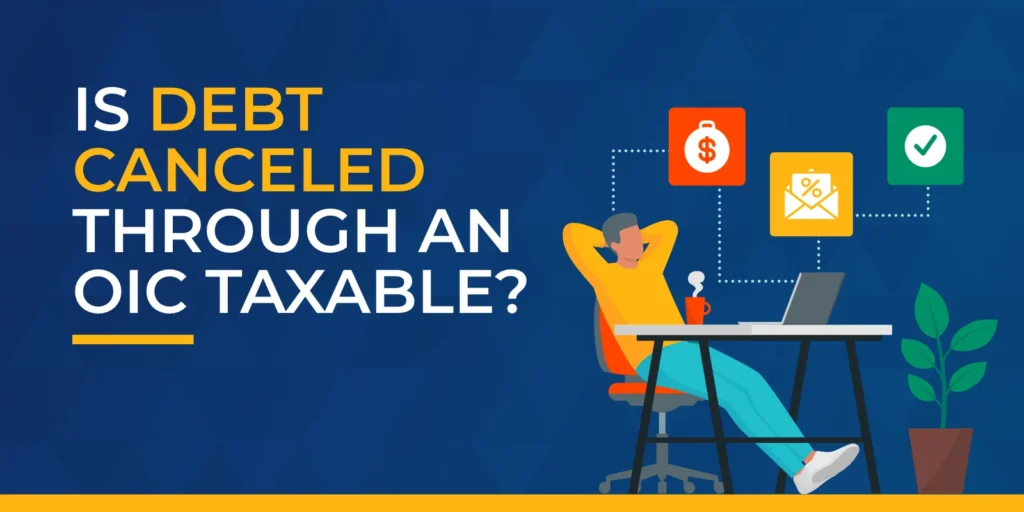
When taxpayers struggle with large amounts of tax debt, an Offer in Compromise (OIC) can offer a much-needed lifeline. This program, administered by the IRS, allows taxpayers to settle their tax debt for less than the full amount they owe. But a common question arises: Is canceled debt through an OIC taxable income? The simple answer is no—debt canceled through an Offer in Compromise is generally not taxable.
Understanding the Offer in Compromise
An Offer in Compromise allows taxpayers to negotiate with the IRS to reduce the amount of their tax debt. The IRS will accept an offer if it believes the taxpayer cannot pay the full amount. They may also accept it if collecting the full debt would create an economic hardship. Once the IRS accepts the offer, the taxpayer must fulfill the agreed-upon terms. This is usually by making a lump sum or installment payments. Once this is done, the remaining debt is forgiven.
Why Canceled Debt Is Usually Taxable
In many other financial situations, canceled or forgiven debt is considered taxable income by the IRS. For example, if a credit card company cancels a portion of your outstanding balance, the canceled debt is usually reported on a Form 1099-C. You must include it as income on your tax return. This principle applies to most types of canceled debt because the taxpayer is considered to have “received” the amount of the canceled debt, which is typically subject to income tax.
The Exception for Tax Debt Forgiveness
The key difference with an OIC is that the canceled debt stems from taxes owed to the federal government. The IRS does not consider forgiven tax debt as taxable income. Because of this, taxpayers do not need to report it on their tax returns. This makes OIC a unique form of debt forgiveness that is generally not subject to taxation.
Why Canceled Debt Through an OIC is Not Taxable
Canceled tax debt through an OIC is not considered taxable income because of the nature of the debt and how the IRS treats it. If a credit card company forgives debt, the IRS usually taxes that forgiven amount because it’s considered a financial benefit. You don’t have to pay back money you once borrowed. On the other hand, when you owe the IRS, you essentially have an unpaid bill to the government that you are settling for less rather than you financially gaining something. The Offer in Compromise program exists to help taxpayers who can’t afford to pay all their taxes. If the IRS forgave part of your debt and then taxed you on it, that would defeat the purpose of the program. The IRS doesn’t want to make things more difficult for you financially after settling your tax debt.
Conclusion
For taxpayers who secure an Offer in Compromise to reduce their tax debt, the good news is that the IRS does not consider the forgiven amount taxable income. This distinction sets an OIC apart from other types of debt forgiveness, making it a tax-advantaged way to manage overwhelming tax liabilities. As always, taxpayers should consult a tax professional. Ensure you fully understand the consequences of settling your debts and how it affects your overall tax situation. Optima Tax Relief is the nation’s leading tax resolution firm with over $3 billion in resolved tax liabilities.
If You Need Tax Help, Contact Us Today for a Free Consultation